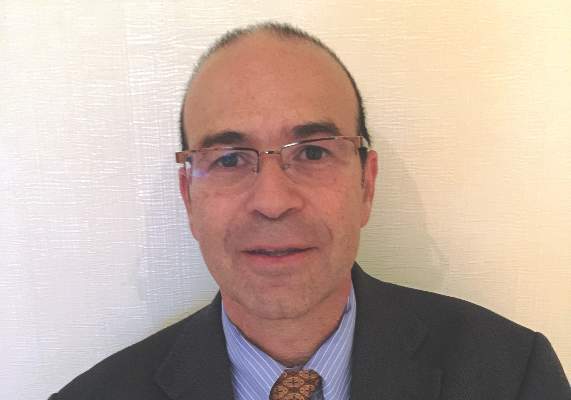User login
Patients can be reluctant to talk about bowel issues and physicians may need to take more of an initiative to draw that information out.
This was a key takeaway from the recent American Gastroenterological Association’s “IBS In America” survey.
“We found that patients are reluctant to talk to physicians about their symptoms,” survey coauthor Dr. Anthony Lembo, associate professor of medicine at Harvard Medical School, Boston, said in an interview. He noted that the survey of patient and physician views on irritable bowel syndrome revealed that patients find it easier to talk about sexually transmitted diseases than they do about bowel functions.
In fact, according to the survey results, 67% of patients who are experiencing symptoms of IBS will go for more than 1 year before seeing a doctor about them, and 43% will go longer than 1 year after taking over-the-counter remedies before speaking to a physician about their symptoms.
However, patients will have conversations with family and friends, often taking advice from them, before consulting with a medical professional. Fifty-nine percent said they have received advice from family and friends and 90% of those receiving advice said they followed it.
Physicians “should recognize that and initiate the conversation so we can find out what the symptoms are,” Dr. Lembo said.
In fact, 71% of survey respondents who have never sought treatment for their GI symptoms said “no” when asked if a health care professional asked about gastrointestinal symptoms or regularity during an annual check-up or exam, with 40% saying they did not tell their doctor about their symptoms.
The other point that the survey drives home and that physicians should be aware of, Dr. Lembo added, is the impact IBS has on patient quality of life.
“We know that IBS can have a major impact on their quality of life, but this survey put more concrete numbers to it in terms of how patients deal with it on a day-in, day-out basis,” he said.
For example, he highlighted that those suffering from IBS report missing on average 2 work or school days per month and have between 8 and 9 days per month when their productivity is hampered due to IBS symptoms.
Indeed, the survey noted that patients were willing to go so far as to trade a month without sex if it meant a month of relief from their IBS symptoms.
“Those kind of numbers, I think they’re important for physicians to know. IBS symptoms can have an impact on [patients’] quality of life and their day-to-day function,” he said.
Patients can be reluctant to talk about bowel issues and physicians may need to take more of an initiative to draw that information out.
This was a key takeaway from the recent American Gastroenterological Association’s “IBS In America” survey.
“We found that patients are reluctant to talk to physicians about their symptoms,” survey coauthor Dr. Anthony Lembo, associate professor of medicine at Harvard Medical School, Boston, said in an interview. He noted that the survey of patient and physician views on irritable bowel syndrome revealed that patients find it easier to talk about sexually transmitted diseases than they do about bowel functions.
In fact, according to the survey results, 67% of patients who are experiencing symptoms of IBS will go for more than 1 year before seeing a doctor about them, and 43% will go longer than 1 year after taking over-the-counter remedies before speaking to a physician about their symptoms.
However, patients will have conversations with family and friends, often taking advice from them, before consulting with a medical professional. Fifty-nine percent said they have received advice from family and friends and 90% of those receiving advice said they followed it.
Physicians “should recognize that and initiate the conversation so we can find out what the symptoms are,” Dr. Lembo said.
In fact, 71% of survey respondents who have never sought treatment for their GI symptoms said “no” when asked if a health care professional asked about gastrointestinal symptoms or regularity during an annual check-up or exam, with 40% saying they did not tell their doctor about their symptoms.
The other point that the survey drives home and that physicians should be aware of, Dr. Lembo added, is the impact IBS has on patient quality of life.
“We know that IBS can have a major impact on their quality of life, but this survey put more concrete numbers to it in terms of how patients deal with it on a day-in, day-out basis,” he said.
For example, he highlighted that those suffering from IBS report missing on average 2 work or school days per month and have between 8 and 9 days per month when their productivity is hampered due to IBS symptoms.
Indeed, the survey noted that patients were willing to go so far as to trade a month without sex if it meant a month of relief from their IBS symptoms.
“Those kind of numbers, I think they’re important for physicians to know. IBS symptoms can have an impact on [patients’] quality of life and their day-to-day function,” he said.
Patients can be reluctant to talk about bowel issues and physicians may need to take more of an initiative to draw that information out.
This was a key takeaway from the recent American Gastroenterological Association’s “IBS In America” survey.
“We found that patients are reluctant to talk to physicians about their symptoms,” survey coauthor Dr. Anthony Lembo, associate professor of medicine at Harvard Medical School, Boston, said in an interview. He noted that the survey of patient and physician views on irritable bowel syndrome revealed that patients find it easier to talk about sexually transmitted diseases than they do about bowel functions.
In fact, according to the survey results, 67% of patients who are experiencing symptoms of IBS will go for more than 1 year before seeing a doctor about them, and 43% will go longer than 1 year after taking over-the-counter remedies before speaking to a physician about their symptoms.
However, patients will have conversations with family and friends, often taking advice from them, before consulting with a medical professional. Fifty-nine percent said they have received advice from family and friends and 90% of those receiving advice said they followed it.
Physicians “should recognize that and initiate the conversation so we can find out what the symptoms are,” Dr. Lembo said.
In fact, 71% of survey respondents who have never sought treatment for their GI symptoms said “no” when asked if a health care professional asked about gastrointestinal symptoms or regularity during an annual check-up or exam, with 40% saying they did not tell their doctor about their symptoms.
The other point that the survey drives home and that physicians should be aware of, Dr. Lembo added, is the impact IBS has on patient quality of life.
“We know that IBS can have a major impact on their quality of life, but this survey put more concrete numbers to it in terms of how patients deal with it on a day-in, day-out basis,” he said.
For example, he highlighted that those suffering from IBS report missing on average 2 work or school days per month and have between 8 and 9 days per month when their productivity is hampered due to IBS symptoms.
Indeed, the survey noted that patients were willing to go so far as to trade a month without sex if it meant a month of relief from their IBS symptoms.
“Those kind of numbers, I think they’re important for physicians to know. IBS symptoms can have an impact on [patients’] quality of life and their day-to-day function,” he said.


